Open on Evenings & Holidays! Extended And Flexible Hours!
* DNA Testing for Immigration
* Paternity Testing
* Deceased Paternity
* Forensic Testing & Much More!
Open on Evenings & Holidays! Extended And Flexible Hours!
* DNA Testing for Immigration
* Paternity Testing
* Deceased Paternity
* Forensic Testing & Much More!
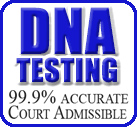
AB DNA Testing Services
63-11 Queens Boulevard
Woodside NY 11377
Phone: 718-701-0292
Fax: 718-458-9700
Monday: 10:00 am – 8:00 pm
Tuesday: 10:00 am – 2:00 pm
Wednesday: 10:00 am – 8:00 pm
Thursday: 10:00 am – 2:00 pm
Friday: 10:00 am – 8:00 pm
Saturday: Closed
Sunday: Closed
We offer New York’s BEST AND MOST AFFORDABLE DNA TESTING with a full range of services to verify family relationships.
We specialize in the following types of DNA tests:
• Paternity • Maternity • Grand-parenting • Sibling Relationship • Biological Relationship Studies • Twin Studies • Deceased Paternity • Forensic Testing • Child Identity Testing • Family Tree and Genealogy Testing
* EVEN LOWER PRICE THAN HOME DNA KITS.
* NO HIDDEN COSTS – Collection kits, photography, and fingerprinting all included.
* 99.9% (OR GREATER) ACCURACY.
* FINAL RESULTS ARE PRESENTED IN A NOTARIZED DOCUMENT IN A CLEAR AND CONCISE FORM.
* ALL RESULTS ARE COURT ADMISSIBLE.
* OVER 15 YEARS EXPERIENCE.
* NO REFERRALS NECESSARY!
* FAST AND PAINLESS SAMPLE COLLECTIONS, USING BUCCAL (Mouth) SWABS.
* SPANISH, PORTUGUESE, FRENCH AND CREOLE SPOKEN.
* PLEASE SEE TRANSLATIONS OF OUR SERVICES IN: SPANISH, BENGALI, URDU, CHINESE AND NEPALESE!
* OPEN SATURDAYS & Sundays!
Located In Woodside Queens, easily reachable from all boroughs (Queens, Manhattan, Brooklyn, Bronx and Staten Island), Westchester, Nassau and Suffolk. 4 Blocks from No. 7 Train (Flushing Line) and Long Island Railroad.
DNA TESTING AVAILABLE FOR BAHAMIAN CITIZENSHIP
ALL SAMPLES ARE COLLECTED IN THE BAHAMAS AND TESTED IN THE US AT AN ACCREDITED LABORATORY. CALL NOW.
Call us. We have found that in many cases, our personalized service can overturn your denial. We will call the passport office or immigration dept. for you and plead your case over phone verbally.
90% of time they will revoke your denial, as long as you get the required information to them quickly.
AB DNA TESTING SERVICES
63-11 Queens Boulevard
Woodside NY 11377
AB DNA Testing Services © |
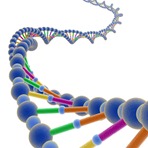 |
63-11 Queens Boulevard We are open on evenings & holidays! |
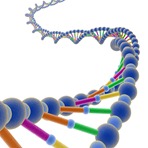 |
AB DNA Testing Services © offers a full range of DNA testing services using the most highly qualified and Certified DNA testing laboratories in the country.
For New York residents, DNA testing has to be performed by a physician or legal entity (court, USCIS, US Embassy or Consulate).
AB DNA TESTING SERVICES © offers a “One-Stop Shopping” service since we have a doctor on the premises who will perform the test. We are open 7 days a week, including weekends.
Immigration DNA Testing • Paternity • Maternity • Grand-parenting • Sibling Relationships • Biological Relationships • Twin Studies • Deceased Paternity • Forensic Testing • Child Identity Testing • Family Tree and Genealogy Testing
Other doctors will charge a fee just for the office visit. We do not charge a fee for our on premises doctor visit. Save money and call for an appointment today!
AB DNA Testing Services ©
718-701-0292
DNA TESTING AVAILABLE FOR BAHAMIAN CITIZENSHIP
ALL SAMPLES ARE COLLECTED IN THE BAHAMAS AND TESTED IN THE US AT AN ACCREDITED LABORATORY. CALL NOW.
How you choose the right DNA testing service is crucial for obtaining accurate and reliable results, whether you’re testing for ancestry, health insights, or legal purposes. With many options available, it can be challenging to determine which service best suits your needs. In this blog, we’ll guide you through the key factors to consider when selecting a DNA testing service.
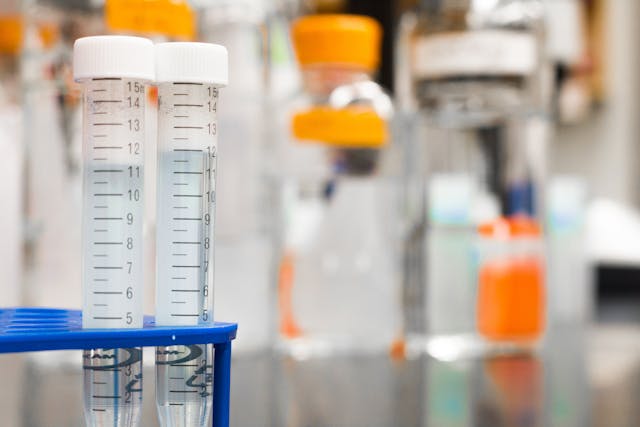
The first step in choosing a DNA testing service is to identify your specific needs. Different tests are designed for different purposes, so it’s important to understand what you want to achieve with your DNA test.
Ensure that the DNA testing service uses a laboratory that is accredited by recognized organizations. Accreditation ensures that the laboratory meets high standards for accuracy and reliability.
Different DNA testing services offer a variety of tests and additional features. Consider what services and features are important to you.
The cost of DNA testing services can vary widely. It’s important to compare prices and understand what is included in the cost.
Your genetic data is highly personal, so it’s essential to choose a DNA testing service that prioritizes privacy and security.
Customer reviews and testimonials can provide valuable insights into the reliability and quality of a DNA testing service.
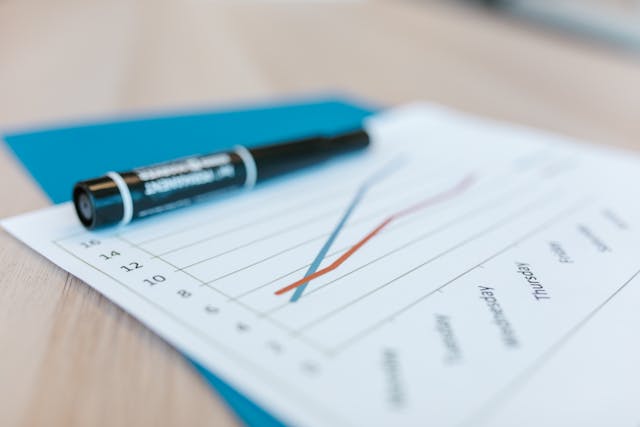
Knowing what to expect from the testing process and how long it will take to get your results is important.
Choosing the right DNA testing service involves considering your specific needs, the accreditation of the laboratory, the range of services offered, cost, privacy policies, reviews, and the process involved. By taking these factors into account, you can select a service that provides accurate, reliable, and secure DNA testing.
For professional DNA testing services in New York City and the Tri-State area, contact AB DNA Testing Services in Queens NY.
AB DNA Testing Services ©
63-11 Queens Boulevard
Woodside NY 11377
718-701-0292
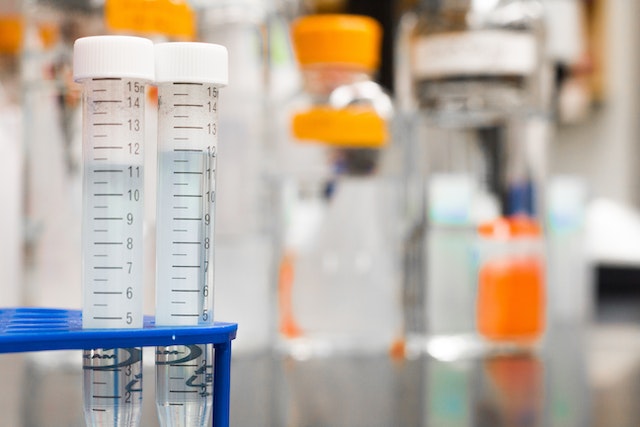 There are many reasons why you might want to get a DNA test. Here are a few of the most common reasons:
There are many reasons why you might want to get a DNA test. Here are a few of the most common reasons:
 There are many different DNA testing companies available. It is important to do your research and choose a company that is AABB certified, reputable, a good track record. Here are a few things to consider when choosing a DNA testing company:
There are many different DNA testing companies available. It is important to do your research and choose a company that is AABB certified, reputable, a good track record. Here are a few things to consider when choosing a DNA testing company:
If you are interested in learning more about DNA testing, please contact AB DNA Testing Services ©. We offer a variety of DNA testing services, including DNA testing for immigration.
AB DNA Testing Services ©
63-11 Queens Boulevard
Woodside, NY 11377
Phone: 718-701-0292
Fax: 718-458-9700
What is a DNA Test? DNA testing, also known as genetic testing, is the process of identifying your genetics. DNA or chromosomes are a genetic element that holds your code of life. DNA is present in our cells, and all of them have the same DNA code. But each person has a unique and different DNA code that distinguishes them from each other. DNA is transferred from generation to generation. You get your DNA from your biological parents.
DNA testing helps to understand genetic changes such as RNA analysis or biochemical analysis. Genetic testing helps in diagnosing medical conditions to rule out the treatment of diseases. It determines the biological family relationship by using different test techniques like paternity testing, maternity testing, or twin testing. We can also predict a person’s ancestors through genetic testing.
DNA testing provides information on DNA, metabolites, and proteins to determine diseases for clinical purposes. It gives information about the genes and chromosomes. There are many types of DNA. Some of them are:
This test provides an early diagnose of the genetic disorders of a newborn for the treatment.
This test diagnoses a specific genetic condition. It usually confirms the diagnosis a doctor makes by looking at the symptoms.
It identifies the person who carries one copy of gene mutation. If two copies of gene mutation combined, it leads to genetic disorders.
It identifies the gene mutation that appears after birth. This test will help those who have a family member of genetic disorder but also predict gene mutation for them who have no symptoms of the genetic disorder at the time of testing.
Paternity test compares your DNA with your biological father to confirm your relationship. You inherit DNA half from your father and a half from your mother. Scientist compares the DNA to find the match of DNA sequence.
This test identifies your genetic heritage or ancestors.
Research testing is common for the research study, and they don’t show results to the patients. This test finds out unknown genes, develops a better understanding of genetic conditions, and learns how genes work.
Apart from the DNA test mentioned above, many other tests are used according to their need.
DNA testing is a science, and it requires technology and method. Your DNA goes through an extensive process to give you DNA test results.
The first step is to collect a sample. The sample can be blood, hair, skin, and amniotic fluid. The most common method is the buccal swab. It takes a sample from the inside of your cheek.
After collecting cells, the next step is to break the membrane of the cells. Mostly, an enzyme is useful to break the cell membrane.
To separate DNA, the membrane of a cell needs to break. There are many methods to separate DNA from the sample but the most common is electrophoresis. This method is performed by using an electric field to separate molecules in the sample. This way, DNA molecules drives away from the rest of the sample.
A method called PCR is used to develop copies of the DNA. These copies then examine for genetic researchers.
After copying, the DNA is tested to identify genetic markers to determine the relationship. Your DNA consists of thousands of genetic markers. The DNA relationship test reports on 16 to 20 specific genetic markers can prove a genetic relationship.
After obtaining genetic markers, they are matched with other DNA samples. This helps you identify the person with the DNA sample. If it is a paternity DNA test, half of the child’s genetic marker should come from the father, while the other half should come from the mother.
DNA tests are common in medical conditions or in legal matters. It is important to take certain measures before through any test. Make sure that the testing facility is using sterilized instruments and their results don’t have any faulty observations.
DNA Testing Lab in Queens, NY, has all the facilities and technology for DNA testing. Our laboratories are AABB certified and equipped with the best technology.
Visit our website or call us at 718-701-0292 to scedule an appointment.
A DNA test is a genetic test that aims to identify ancestral relationships on the basis of genes. To begin the genetic -testing process, the doctor takes a sample of the individual’s blood, hair, skin or amniotic fluid.
Autosomal DNA is present in the 22 pair of chromosomes the remaining 22 chromosomes that do not carry our sex determination. Autosomal DNA is responsible for recombining each generation so that the new born inherits a set of chromosomes from each parent. There is high level of accuracy in these tests and can confirm relationships from parents to second cousins.
YDNA is another type that focuses on the subject’s Y chromosomes. Therefore, it is only works on males to determine the paternal line. mtDNA is a type of DNA that is present in mitochondria. This cellular mitochondria transfer to an individual from their mother. Hence, it is perfect to determine the maternal line.
The sample of your saliva passes through a procedure, Buccal Swab. In this procedure, the doctors will collect the cells from the inside of your cheek. A lab technician carefully examines and processes it on a geno-typing chip. The cell membrane separates and breaks down by adding an enzyme solution to speed up the process. This gives the technician multiple results of variants in your genome. To separate DNA, it passes through electrophoresis which involves using an electric field for separating.
The lab then sends results to a genetic counselor, for further analyzing of the genetic data. Each person you interact with has a DNA similar to yours. However, minor different make you unique from them. To test newly born babies, doctors would take the blood from their heels. This determines whether the baby has a genetic disorder or not.
To conduct a DNA test at home, you can purchase a test kit. This alternative is convenient because it secures your privacy and thanks to the advances in genetic science, it saves you the hassle of going to a doctor. Home testing determines the parents of the individual by taking a sample of their hair. It comes with a swab for the mother and father and uses the same buccal swab that doctors use in saliva collection method. A lab tests the sample of hair and saliva.
Both testing methods produce accurate results. However, slight mistakes during the home kit testing process and packaging can interfere with the accuracy of results. If you are planning to conduct a home test then make sure you read all instructions behind the kit. It is an advanced process and the saliva swab collection method is actually an equivalent to blood sample testing. It helps give a clear idea of biological relationships and maternal/paternal lines. These results sometimes help solve visa related complications as well.
Bottom-Line
To conclude, DNA testing using the typical procedure and going to the doctor physically is what most people prefer going through. This may be because they are not aware of the home-kit testing procedure. If you have any doubt and skepticism in your mind, it is best that you meet a doctor immediately to discuss them.
Get in touch with the best DNA lab in NYC today. We ensure your privacy and guarantee accurate results of testing.
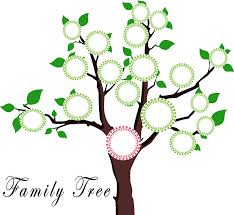 Have you ever wondered if you’re actually related to someone who shares the same last name? Have you wondered where your ancestors probably lived and where they migrated to? Do you want to learn more information about that mystery part of your family tree? If so, family tree DNA testing can help you obtain this information.
Have you ever wondered if you’re actually related to someone who shares the same last name? Have you wondered where your ancestors probably lived and where they migrated to? Do you want to learn more information about that mystery part of your family tree? If so, family tree DNA testing can help you obtain this information.
We can perform family tree DNA testing in a variety of ways to help you learn more about yourself, your family, and where you came from.
Before we can test your DNA, we must obtain a DNA sample. We do this by collecting buccal cells, or cheek cells, from inside a person’s cheek using a cheek swab made of cotton. This is a painless, non-invasive method of gathering DNA samples. After we have your DNA sample, we will remove everything but the DNA itself.
 Each person has a unique set of DNA. All of a person’s DNA put together is called a genome. When people are related by ancestry, their genomes are more similar to each other than when they are not related. When we compare the genomes of multiple people, we are able to see how similar their genomes are, and thus understand more about the common ancestry of those people.
Each person has a unique set of DNA. All of a person’s DNA put together is called a genome. When people are related by ancestry, their genomes are more similar to each other than when they are not related. When we compare the genomes of multiple people, we are able to see how similar their genomes are, and thus understand more about the common ancestry of those people.
1. Testing of your paternal line (Y-DNA testing)
Y-DNA testing is the testing of the Y chromosome in males to gather genetic information about that person’s paternal family line. Because females do not have a Y chromosome, they cannot take this test and will need to seek a different type of ethnic DNA testing. Y-DNA testing follows your direct paternal line and therefore allows you to gather historical and genetic information about people who share the same surname.
The testing of your mitochondrial DNA is known as mtDNA testing. Mitochondria are the organelles inside your cells that provide the cells with energy. These organelles contain their own DNA, separate from the rest of the cell, and therefore we are able to test this DNA on its own. You inherit your mitochondrial DNA from your mother, so this DNA testing can provide information about your genetic maternal line. Both males and females inherit their mother’s mitochondrial DNA and therefore both genders are able to take this type of ethic DNA test.
Autosomal DNA testing is the testing of all of your DNA besides your sex chromosomes. This can be done for both males and females and is usually the best option for ancestry DNA testing. With Y-DNA and mtDNA testing, you will receive information about your paternal and maternal lines, which can go very far back in history, but the rest of your family tree will be a mystery. With autosomal DNA testing, however, we can piece your complete family tree together to help you learn more about your family history.
If you are interested in any of these types of family tree DNA testing, contact us today to schedule a family tree DNA test appointment with the best AABB-accredited DNA testing lab in NYC.
References:
https://www.dna-testing-adviser.com/EthnicDNATesting.html
https://medlineplus.gov/ency/article/003414.htm
https://www.smarterhobby.com/genealogy/family-tree-dna-review/
Over recent years, the worlds of medicine and technology have evolved hugely. The advancements we have seen in these fields have changed our lives in many ways and helped to make life easier in a variety of ways. DNA testing is one of the benefits that we have been able to enjoy as a result of technological and scientific advancements and these tests can be used for a variety of reasons.
People often have questions about DNA testing and some of the more common ones are listed below:
DNA tests are carried out for many different reasons depending on the needs of the person requesting the test. Some of the key reasons behind having these tests include paternity and maternity testing, establishing any biological relationship with another person, checking on predisposition to disease based on genetics, immigration purposes, legal reasons, and checking ancestry.
Having a DNA test carried out privately by an established DNA testing center should not cost a huge amount but the price can vary from one place to another. This is why you need to ensure you compare the cost of tests before you choose a facility, as the price difference can be quite steep in some cases.
Again, this can vary from one facility to another and will also depend on any complications that may occur with regards to obtaining the necessary samples. In general, you should receive the results of DNA tests within a few days although some facilities do offer an express facility where the test is expedited and the results are therefore available earlier.
There are various sample types on which DNA tests can be carried out depending on the type of test you are having done. A saliva swab is generally the most common, as these contain saliva and skin cells. However, there are also other samples that can be used in the field of DNA testing including semen samples, hair and nails, or blood samples.
If you require a DNA test for any reason, it is important to make sure you find a reputable provider. For more information about DNA testing and what you need to do next, get in touch with the leading DNA testing center in NYC.